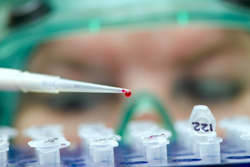A molecular chaperone and its activator
The assembly of proteins within cells requires the folding of thousands of different polypeptides into a range of conformations. In many cases, the action of molecular chaperones is required to handle substrate polypeptides from initial synthesis to the final folding process of the client proteins. The aptly named EU funded project THE HSP70 CHAPERONE aimed mainly to investigate the action of the molecular chaperone Hsp70. The project team at the University of Bonn focused their attention on another member of the heat shock protein family, Hsp90. Together with Hsp70, this protein is involved in the folding and conformation of proteins that have medical significance. Included are nuclear receptors for steroid hormones and members of the proto-oncogenic kinases. The interaction of Hsp90 together with its activator Aha1 was investigated using genetic and biochemical protocols. The scientists identified the specific binding site of the activator and found that Aha1 activates the heat shock protein ATPase (adenosine triphosphatase) activity. The activator also increases the efficiency of the chaperone by activating the client proteins. Moreover, under sub-optimal growth conditions, where Hsp90 levels were limited, Aha1 was crucial to cell viability. These findings indicate that Aha1can be classed as a novel regulatory cofactor of Hsp90. Furthermore, as it activates proto-oncogenic kinases, it may well enable Hsp90 to act as a cancer chaperone. As such, knowledge about Aha1 may help to elucidate the pathways involved in tumourigenesis.







